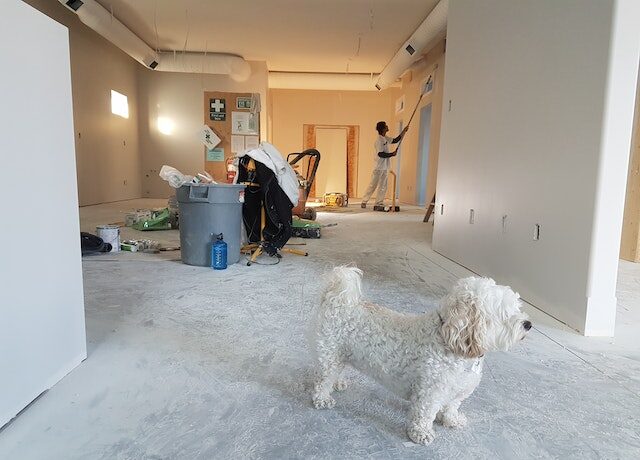Are you tired of waiting for a repairman to handle minor property issues? Well, guess what? No need! You can be your home’s DIY hero with a few tools and knowledge. This blog post covers the most typical repairs homeowners do, the gear they need (including rivnut guns), safety precautions, how to avoid costly mistakes, and when to call a pro. Roll up your sleeves and unleash your inner handyman—no problem is too big or small for you to solve!
The most common repairs?
There are several complications that might arise with simple house maintenance. Plumbing issues are common among homeowners. From leaky faucets to clogged drains, these problems can disrupt your day. Electrical issues including flickering lights, broken outlets, and blown fuses are frequent and frustrating.
In addition to plumbing and electrical repairs, household fixtures need general maintenance. Squeaky doors and damaged windows are examples. Additionally, roof leaks and damaged shingles must be monitored to prevent water damage inside your home.
Let’s not forget the constant battle with paint chipping and plasterboard cracks that need fixing. Outdoor spaces like decks and fences require regular upkeep like sealing wood surfaces or replacing rotten planks.
With all many potential repair projects in every part of your home, you need the right equipment and skills to tackle them!
What tools are needed? rivnut tools and firearms
The appropriate tools are vital for DIY home repairs. rivnut guns Australia can be used for many repairs. This multipurpose tool installs rivnuts or threaded inserts rapidly.
A rivnut gun drills a hole and inserts a threaded insert. The cannon compresses and secures the implant. This is great for installing shelves, fixing furniture, and changing appliance parts.
Besides a rivnut gun, you may require other instruments for DIY home repairs. Flathead and Phillips screwdrivers, pliers, wrenches, and hammers are always needed. A power drill with many bits may also drill holes and drive screws.
Always prioritise safety when using any tool. Read the manufacturer’s directions before using a new tool like a rivnut gun. Learn how the tool works and any safety considerations.
Knowing when to hire a pro rather than DIY repairs is also crucial. Some jobs demand specialised knowledge or equipment that homeowners may not have. Electrical repairs can be dangerous if done poorly.
Remember: doing modest repairs around the house might save you money and give you a sense of accomplishment, but knowing when to bring in an expert can keep your home safe and functional.
Before using, learn about the tools and follow safety measures.
Knowing what equipment to use when fixing your house yourself is vital. Before starting, familiarise yourself with the tools needed for each repair.
Safety should always come first. Before using any tool, read the handbook and understand its operation. This will help you operate the instrument appropriately and prevent injury.
Rivnut guns are useful for numerous repairs. This multipurpose tool firmly fastens metal objects without welding or drilling huge holes. Before using a rivnut gun, make sure you know how to load and alter the settings for different materials.
Always wear safety goggles and gloves when working with equipment. Precautions reduce the chance of unanticipated accidents.
Additionally, some repairs may require specialised tools not in your toolbox. Consider renting or borrowing these tools instead of buying them.
By learning about the tools needed for each repair and following safety precautions, you may confidently DIY house repairs without accidents!
How to avoid costly mistakes
Avoiding costly mistakes is key when repairing your home. One of the biggest blunders is not examining the problem before fixing it. Spend time investigating the issue and its cause.
Repairs with the wrong tools or methods are another common mistake. Be sure to have rivnut guns Australia and other necessary tools and learn how to use them before starting a repair project.
Lack of preparedness might cause costly mistakes. Gather materials and make a plan before starting a repair. This prevents delays and extra costs.
Knowing your limits is crucial. DIY repairs might save money, but some chores should be done by specialists. Call an expert for dangerous or specialised repairs.
Rushing repairs might lead to poor quality and future issues. To achieve long-term results, take your time and follow directions.
By avoiding these pricey blunders, you can DIY home repairs without breaking the bank.
When to consult a pro
Knowing when to call a pro is crucial for DIY house repairs. You can handle many things on your own, but sometimes it’s best to hire professionals.
Some repairs require specialised knowledge or equipment you may not have. Always trust skilled specialists with electrical, plumbing, and major structural repairs. Without sufficient training, these fixes can be dangerous and costly.
If you’re intimidated by a repair’s complexity or don’t have the time or energy to handle it yourself, calling a pro can save you stress. They will have the expertise and resources to complete the assignment quickly and well.
DIY home repairs need knowing your limits as a homeowner. Ask for help when needed—calling a professional may be the best option.
By knowing how to use simple tools and following safety precautions, homeowners can perform many ordinary household repairs. You’ll feel accomplished and self-sufficient while saving money.
Remember that some jobs are too complicated or dangerous for amateurs. Electrical systems, plumbing difficulties beyond simple adjustments, and structural issues needing substantial expertise and experience should be handled by experts.
So boldly do little house upkeep! With patience, practise, and ongoing learning, and knowing when professional help is needed, your house will be well-maintained for years!





